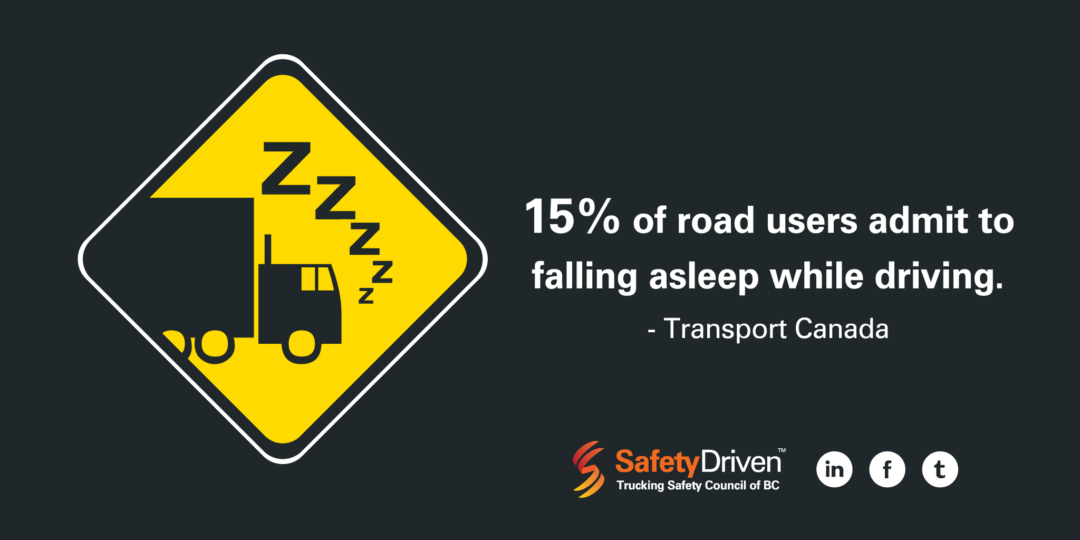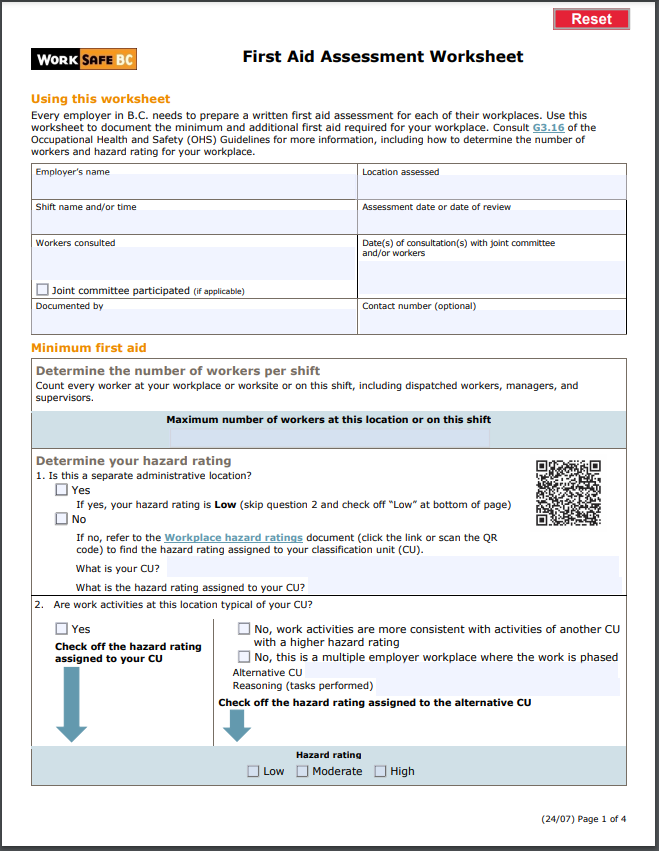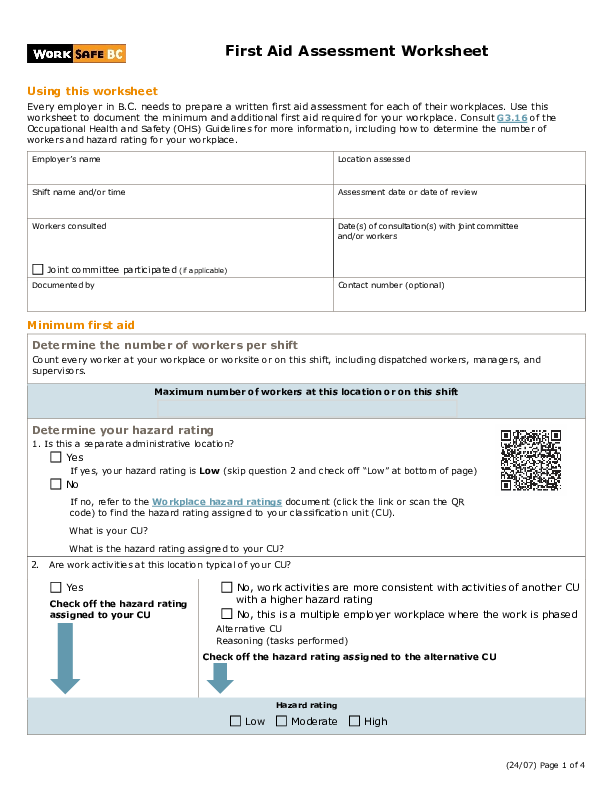
Driver Fatigue Can be Fatal
You cannot overcome fatigue with willpower, caffeine, air conditioning, or loud music.
That feeling you get like your eyes are being pulled from their sockets and you can’t keep your eyelids up is fatigue. You are falling asleep while driving. No matter how skilled or experienced you are, or how quick your reflexes, when you are drowsy at the wheel you are a liability on the road. Yet 15% of all road users in Canada admit to having fallen asleep while driving.
When you are fatigued, you are impaired. Driving while impaired by fatigue can have tragic results, just like driving when impaired by alcohol or drugs. The Canadian Centre for Occupational Health and Safety (CCOHS) Fatigue Fact Sheet indicates that one in five motor vehicle collisions is related to fatigue. ICBC reports that in BC, on average each year, driver fatigue kills nine people and injures 620 in 850 crashes.
Although the dangers of driving under the influence of alcohol or drugs are widely known, the effects of fatigue on driving are less commonly recognized. The CCOHS fact sheet states that the number of hours awake can be likened to blood alcohol levels, with one study reporting these correlations:
• 17 hours awake is equivalent to a blood alcohol content of 0.05
• 21 hours awake is equivalent to a blood alcohol content of 0.08 (legal limit in B.C)
• 24-25 hours awake is equivalent to a blood alcohol content of 0.10
A tired driver could be impaired long before the 21-hour mark; it’s up to you to monitor yourself. SafetyDriven’s Fatigue Research Summary warning signs of fatigue impairment include:
• Frequent yawning
• Heavy eyelids
• Drooping head
• Microsleeps (naps lasting a few seconds, sometimes with no awareness of nodding off)
• Difficulty concentrating or remembering
• Accidentally doing the wrong thing
• Lacking motivation to do a task well
• Irritability
If you don’t notice a vehicle until it passes you, you don’t recall driving the last few kilometres, or you find yourself wandering into the next lane, onto the shoulder, or over the centre line, you could be too drowsy to drive safely.
Research shows that fatigue can result in a decrease in attention, slower response times, and/or a lower level of awareness to road hazards, any of which could lead to or contribute to a crash.
“A slight decrease in your reaction time can greatly increase your risk of crashing, especially when travelling at highway speeds,” ICBC advises.
Even when drivers are aware that they are getting fatigued, they often tend to ignore it and try to push through, thinking “I’m tired, but I can still drive fine,.”
Not so, says ICBC.
“The only cure for sleepiness is sleep. As soon as you become sleepy, the key is to stop driving…. pull over when it’s safe, turn off your [vehicle] and take a nap. Opening a window, blasting the air conditioning or turning on music are not effective ways to keep you awake while driving.”
Visit SafetyDriven.ca for more information about the effects of fatigue on driving and free online resources for drivers and businesses, including:
• The Main Thing to Remember About Fatigue
• Fatigue is More Than Just Feeling Tired
• Sleep Health and Wellness
• Driving Tired is Driving Impaired
• Driving Drowsy is Just as Dangerous as Driving Drunk
• I’ll Sleep When I’m Dead
For more safety news, sign up for our weekly newsletter!
Latest Resources
How to Complete WorkSafeBC’s First Aid Assessment
Learn how to complete WorkSafeBC's First Aid Assessment with this step-by-step guide. ...
First Aid Assessment Worksheet
Every employer in B.C needs to prepare a written first aid assessment for each of the ...

